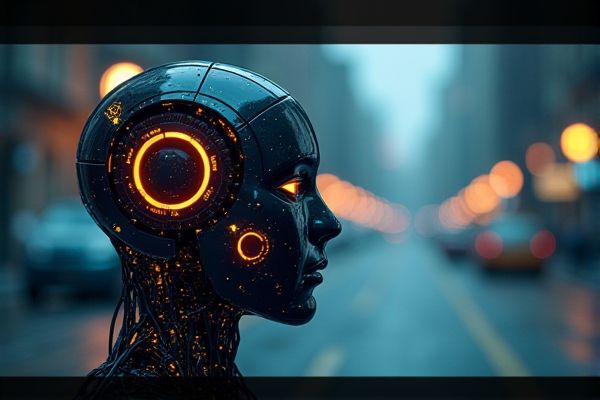
AI streamlines various aspects of movie production, enhancing efficiency in scriptwriting, casting, and editing. Advanced algorithms analyze audience preferences, assisting filmmakers in crafting narratives that resonate with viewers. Machine learning tools expedite post-production processes by automating tasks such as video editing and sound design. AI-driven marketing strategies optimize promotional efforts, ensuring films reach targeted audiences effectively.
AI usage in movie production
**Script Analysis and Generation**
AI can streamline script analysis by assessing plot structure and character development for potential improvements. Tools like ScriptBase utilize natural language processing to identify inconsistencies and suggest refinements. This can lead to stronger narratives and more engaging storylines, increasing the likelihood of box office success. By incorporating AI-generated elements, filmmakers may enhance creativity and maintain competitive advantages in a crowded market.
**Visual Effects Automation**
Visual effects automation in movie production can enhance efficiency by streamlining complex processes. For example, incorporating AI tools can minimize the time needed for tasks like background compositing and scene rendering. Such automation may lead to cost reduction and faster project turnaround, allowing filmmakers to focus on creative elements. The integration of AI technologies holds the potential to improve the overall quality of visual effects in films.
**AI-driven Editing Tools**
AI-driven editing tools can streamline the movie production process by automating time-consuming tasks. These tools can analyze footage and select the best takes, significantly reducing editing time and costs. For instance, a film production company like Warner Bros might see enhanced creativity and efficiency with AI integration. The potential for improved audience engagement through tailored content editing represents a promising advantage in the competitive film industry.
**Voice Synthesis and Dubbing**
Voice synthesis and dubbing in movie production can enhance the efficiency of post-production processes. By employing AI technology, filmmakers can generate lifelike voiceovers, reducing the need for multiple voice actors. This approach also allows for seamless localization of films for various markets, as seen with popular streaming platforms like Netflix. The potential for cost savings and quicker turnaround times makes AI a valuable asset in contemporary filmmaking.
**Audience Sentiment Analysis**
AI can enhance audience sentiment analysis in movie production, offering insights into viewer reactions to trailers, characters, and storylines. By leveraging machine learning algorithms, studios can predict box office performance based on social media sentiment, leading to more informed marketing strategies. For instance, a film's promotional campaign might be adjusted in real-time based on AI analysis of audience feedback. This technology presents opportunities for better alignment with audience expectations and improved overall movie success.
**Virtual Reality Integration**
AI usage in movie production can enhance storytelling through virtual reality integration, offering immersive experiences to the audience. With tools like AI-driven script analysis, filmmakers can identify trends and audience preferences to refine their narratives. Brands, such as Oculus, are pushing the boundaries of virtual reality, making it a potentially significant avenue for filmmakers. This technological advancement may allow creators to experiment with interactive storytelling, giving viewers more agency in their cinematic experience.
**Character and Scene Modeling**
AI can significantly enhance character and scene modeling in movie production by automating complex tasks. For example, tools like NVIDIA's Omniverse allow artists to design lifelike characters and detailed environments with minimal effort. This reduces production time and costs, enabling filmmakers to visualize concepts more rapidly. The integration of AI can also facilitate creative brainstorming, providing artists with innovative design suggestions based on existing cinematic trends.
**Production Scheduling Optimization**
AI can enhance production scheduling optimization by analyzing vast amounts of data to create efficient timelines. For instance, a film studio like Warner Bros. may utilize algorithms to predict the best shooting schedules based on actor availability and weather conditions. This can reduce costly delays and improve resource allocation during filming. By leveraging AI, production teams may find opportunities to decrease overall costs and increase the likelihood of meeting release deadlines.
**Data-driven Marketing Strategies**
AI usage in movie production can significantly enhance decision-making by analyzing audience preferences and trends. For example, a film studio like Universal Pictures may leverage data-driven marketing strategies to optimize promotional campaigns and target specific demographics. This technology offers the potential for improving box office performance by identifying the most effective channels for engagement. As AI continues to evolve, the chances of achieving a competitive edge in the industry increase.
**Enhanced Storyboarding Techniques**
AI usage in movie production can lead to enhanced storyboarding techniques, making the visual planning process more efficient. By employing algorithms that analyze script elements, filmmakers can generate detailed storyboard layouts with minimal manual input. For example, institutions like UCLA's School of Theater, Film and Television leverage AI to streamline this process, allowing for quicker adjustments and revisions. The possibility of a more coherent visual narrative emerges, offering a significant advantage in pre-production phases.
 techknowy.com
techknowy.com